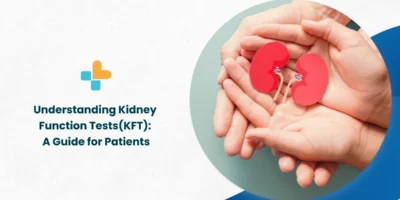What are Kidney Stones?
Kidney Stones form due to the collection of salts and minerals on the inner lining of the kidney. Patients house different types of kidney stones that can be caused because of many reasons.
Some kidney stones can pass through the urine depending on the size. The patients housing a kidney stone can suffer from other complicated problems which can ultimately damage the entire kidney.
What is Percutaneous Nephrolithotomy (PCNL)?
Percutaneous nephrolithotomy (PCNL) is the process of removing the kidney stones that are present in the upper part of the ureter and the kidney.
This process removes the kidney stones, which are more prominent and are unable to pass through urine on their own. The process starts with a small incision on the back to remove the kidney stone that is too big (more than two cms).
When is PCNL recommended?
Doctors after examining the patient’s body suggest them to undergo the PCNL surgery when he / she is diagnosed with the following conditions:
- Stones have a larger diameter, typically >2 cm, although this number can vary on a case to case basis
- Stones are likely to cause severe complications that may eventually result in kidney damage
- There are multiple blockages in the collecting branches of the kidney
- Kidney Stones migrate to the ureter
- Failing of all other treatments
PCNL Procedure
The doctor starts with the surgery by making a small incision of 1cm in the patient’s flank area. Under the x-ray examination, the doctor places a tube into the kidney through the incision.
The doctor inserts a telescope through the tube to have the visualization of the stone. Also, it breaks up the stones and removes them from the body of the patient.
Also, the doctor may go for a laser to break the stones into smaller ones and get them removed from the patient’s body.
The process considerably results in less pain after the operation and has a shorter recovery period as compared to other kidney removal procedures. The patient need not stay for a longer time in the hospital and can continue with their daily routine. The hospital stay can be approximately 1-2 days depending on the patient’s condition.
Risks of PCNL Surgery
- Bleeding
- Infection
- Organ/ Tissue Injury
- Incomplete removal of kidney stones
- Chance of conversion to open surgery
What is Retrograde Intrarenal Surgery(RIRS)?
Retrograde Intrarenal Surgery is an endoscopic surgery that removes kidney stones by moving through the ureter into the kidney.
The process uses a viewing tube known as fibre optic endoscope and a holmium laser fibre and cures the renal stones.
Why is RIRS recommended?
Doctors suggest patients undergo the RIRS surgery if he / she is diagnosed with the following conditions:
- The patient is housing a kidney stone upto a diameter of 2 cm, although this can vary across cases.
- Non-opaque stones
- Bleeding disorders
- Presence of anatomic abnormalities (long lower pole calyx, acute IPA, narrow infundibulum)
- Multiple kidney stones including nephrocalcinosis(when calcium levels increase in the kidneys)
RIRS Procedure
Retrograde Intrarenal Surgery removes the kidney stones using flexible ureterorenoscopy. The process begins by placing the scope or the viewing tube in the bladder through the urethra and then it moves to the urine collecting part of the kidney through the ureter.
This scope sees the kidney stone to either break it, blast it or evaporate it into small pieces using an ultrasound probe or the laser probe.
Also, the doctors can manually remove the kidney stone using forceps. To improve the drainage and on doctor’s advice, a stent can be inserted as well.
Once the treatment is successful enough in removing the large stones, all the small kidney stones are taken off through the stone baskets.
The process uses general anesthesia and is performed under the guidance of a specialist or urologist with expertise in RIRS.
Risks of RIRS
- Fever
- Flank pain
- Urinary infection
- Transient hematuria
- Ureteral pelvicalyceal abrasion
- Fornix rupture
- Ureter avulsion
- Bleeding
- Sepsis
- Trauma to kidneys
Differences between PCNL and RIRS
| Percutaneous Nephrolithotomy (PCNL) | Retrograde Intrarenal Surgery(RIRS) |
| PCNL treatment is usually preferred by the patients housing large kidney stones (typically >2 cm) | RIRS is more effective in removing small-medium sized kidney stones (typically <2 cm) It takes several RIRS treatment sessions for breaking a stone larger than 2cm. |
| The patients who undergo PCNL treatment take a lot of recovery time | The recovery time is less in RIRS |
| The chances of recurrence of kidney stones is lesser in case the patient selects PCNL | The recurrence chances are comparatively higher in RIRS after the first session. |
| Most studies suggest that PCNL has a higher probability of postoperative complications such as blood transfusion, fever rates. | RIRS has less or no postoperative complications. |
| The patients often suffer from the dropping of haemoglobin levels after undergoing PCNL treatment. | The drop of haemoglobin level is very less in the RIRS procedure. |
| The patient needs to stay for 2-3 days in the hospital. | RIRS requires a shorter period of hospital stay that ranges from a few hours to a day. |
| PCNL is more effective in removing the hard and brittle kidney stones. | Patients may require more than one RIRS session to remove the hard and brittle stones. |
| Patients suffering from any health issues may not consider PCNL a best treatment solution. | RIRS is more successful in removing kidney stones if the patient suffers from obesity, musculoskeletal deformities, bleeding diathesis, and in cases of unsuccessful ESWL treatment previously. |
| PCNL may lead to the development of sepsis in some cases. | There is no such possibility of sepsis development in RIRS. |
Though both the above treatments help remove the kidney stones, yet the patients must be familiar with the procedures. Also, RIRS conducted with a holmium laser acts as an alternative to PCNL only in selected patients housing large-sized renal stones.
Depending on the severity, kidney size, density, location, the doctors will suggest the best process. One must consult the doctor as soon as possible if he suffers from any symptoms of kidney stones.
RIRS and PCNL are the best procedures in their ways and demolish the chance of recurrence if performed under the supervision of expert urologists.
Choose Ayu Health
Ayu Health is India’s most trusted network of hospitals. Our in-house kidney stone experts are among the best in their field and will suggest the most optimal kidney stone treatment (surgical or non-surgical) for the patients depending upon their case.
Ayu Health offer all advanced and effective Kidney removal treatments. We not only have a skilful doctor’s team but also carry mandatory certifications from the government authorities. NABH, India’s premier hospital accreditation authority, recognises all of Ayu Health.
Ayu Health offers 100% fixed price packages for all surgical procedures, which means patients can focus solely on recovering, and not a rising bill. Ayu Health also provide patients with a dedicated Ayu Mitra who provides patients any type of assistance they need within the hospital, ranging from registration to insurance documentation.
If you are looking for a leading doctor who can treat and perform effective kidney removal treatment and suggest the best methods to get the procedure just right for you in India, you can call +91 – 6366 100 800 or visit us at https://ayu.health/bangalore/surgery/Kidney-Stone-10.
Our Hospital Locations
Urology Surgery Hospitals in Chandigarh | Urology Surgery Hospitals in Bangalore | Urology Surgery Hospitals in Jaipur | Urology Surgery Hospitals in NCR | Urology Surgery Hospitals in Hyderabad
Our Doctors
Urology Surgery Doctors in Chandigarh | Urology Surgery Doctors in Bangalore | Urology Surgery Doctors in Jaipur | Urology Surgery Doctors in NCR | Urology Surgery Doctors in Hyderabad



